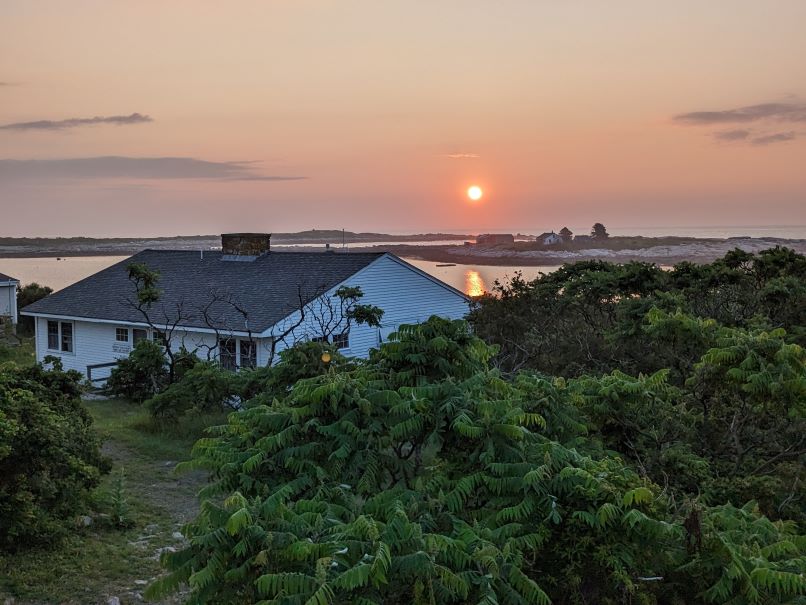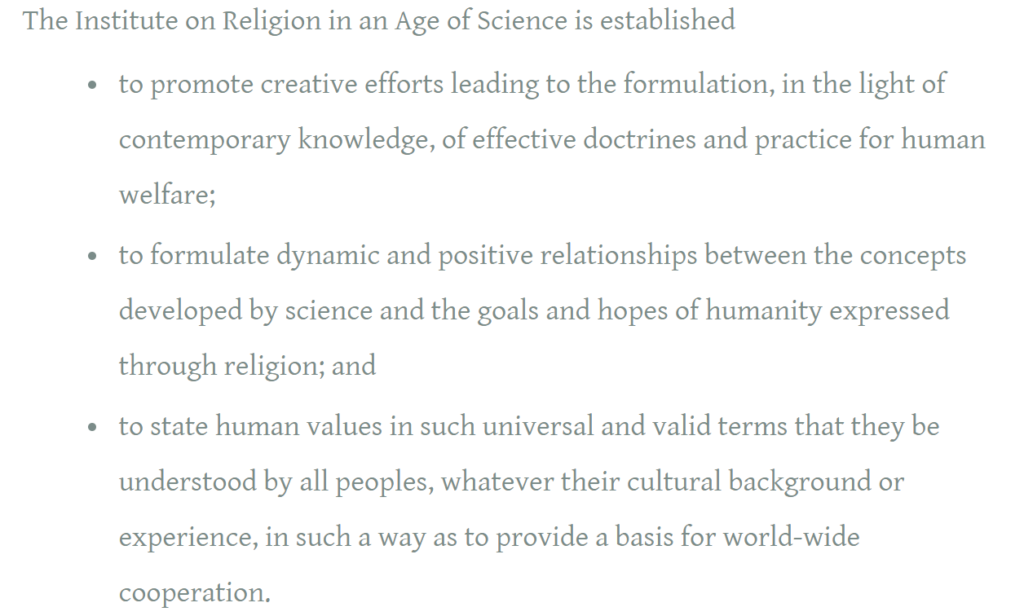This entry is based loosely on my Japanese article for Nikkan San, a part of my bi-weekly column, “The Way of the Pianist” to be published on July 16th, 2023.
I just came back from a week-long Institute of Religion in the Age of Science (IRAS) conference. The theme this year was the climate crisis, and I went to give a concert-presentation, co-representing Tempo: Music for Climate Action with another core-member Neil Fromer, Executive Director of Resnick Sustainability Institute at CalTech, and Tempo’s founder, Lucy Jones.
Founded in 1954 in the midst of Cold War and the threat of nuclear war, IRAS started as a place of interfaith and cross-sector dialogues for improve understanding and communications around our humanity and the latest science, and the mitigate damage in the face of our global challenges. Philosophers, lawyers, religious scholars, marine biologists, political scientists, economists… scholars gathered on Star Island, off the coast of New Hampshire, to offer their expert perspectives to enrich our conversations around this global challenge.



(What do I have to offer as a pianist to these celebrated experts…?) It took some courage for me to actively participate in this conference. However, throughout the course of the week, I kept thinking back to the famous allegory that dates as far back as the 5th century whose many versions has been told and retold all over the world. The story of blind men, none of whom have ever heard of elephant, each speak of the object as they feel what the assume to the whole of this enormous unknown being. Most versions end in disputes, each insisting on his own sense, not being able to imagine anyone else can also be valid in their senses. In the middle of this conference of diverse experts presenting their perspectives on this global, multi-faceted issue, I started to see my potential contribution. As a musician, trained in the art of listening, the harmony of the spheres, and the universal language, perhaps the part that musicians like myself can play is to create resonance out of diverse voices. Perhaps, I can help inspire better communication between experts, who may be like the blind men trying to figure the elephant out by focusing on one aspect of this dynamic and ginormous phenomenon. I opened my presentation with that thought, and introduced the science behind the power of music as well as example of its successful implementations in education, healthcare, community-building, etc. I finished the program by playing Scriabin’s Nocturn for the Left Hand, Op. 9-2 with as a reminder of human resilience. Many pianists, throughout history, after losing the the use of their right hand from overuse injuries, wars, etc. still were determined to play the piano – so much so that pieces for the left hand are now subgenres of piano repertoire.
On the top page of IRAS website, it has the following statements as its constitution.

I grew up with some reservations and skepticism about organized religions, especially towards monotheistic religions and their exclusivity and intolerance for views other than their own. However, the more I consider this climate crisis, I also see the need to cultivate a sense of humility in the realization of our interconnectedness to each other and this world: things greater than ourselves. Religious practice and rituals create a sense of community and pride that have led to historical examples of great human resilience, persistence, and strength. The conference helped me reevaluate my own biases around religion, and what I can learn from those who incorporate religious practice in their daily lives.
At IRAS, I participated in morning services (one morning service was a Zen meditation!) Each night ended with a candle service. Some of the participants were atheist. Some were PhD scientists who were also religious leaders of their communities. We all lived together, ate the same food, and talked, laughed, exchanged stories, and sometimes cried.
Love your contribution towards a most worthwhile cause of being good stewards of this planet.
In regards to the elephant allegory, I wonder if the one who sits up high and sees that it is indeed an elephant that they are touching and not the objects that they mistakenly ascribe, would be labeled as intolerant and exclusive for his view?
Hello, Manuel!
I wonder if you are describing the intolerance that brave whistle blowers often get subjected to?
Are those that claim to know truth subjected to intolerance?
I would say that both the brave whistle blower and the one that knows that it is indeed and elephant are in the same category of claiming to stand correct in truth.
Pingback: 美笑日記7.12:音楽家の環境運動 - "Dr. Pianist" 平田真希子 DMA